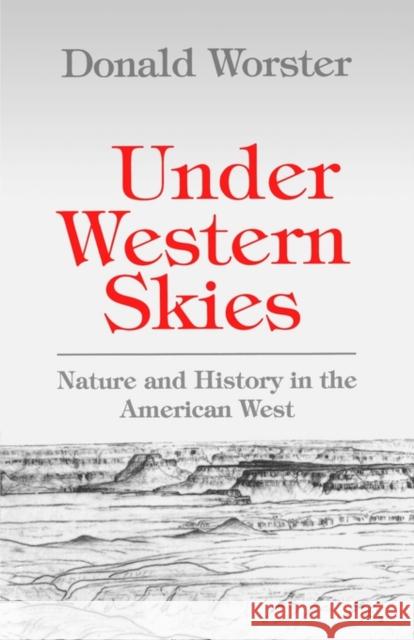Under Western Skies: Nature and History in the American West » książka
Under Western Skies: Nature and History in the American West
ISBN-13: 9780195086713 / Angielski / Miękka / 1994 / 304 str.
For decades, the story of the American West has been told as a glorious tale of conquest and rugged individualism--the triumph of progress. But recently, a new school of historians has challenged this view, creating what is known as the "new western history," an approach that gives a central role to the environment, native peoples, and the concentration of power in the hands of a few. Foremost among these historians is Donald Worster. In Worster's writings, the western past emerges not as a march of Manifest Destiny but rather as an unfolding relationship between humankind and nature.
In Under Western Skies, Worster provides an eloquent introduction to the changing traditions of western historical writing and then demonstrates his own approach through fascinating case studies. For example, he takes a hard look at the struggle by the Lakota to regain ownership of the Black Hills, examining not only the legal history of treaties and court cases but also the importance of the Black Hills in Indian religion and the way they have been mismanaged by the U.S. government. He discusses the cowboy in terms of the new ecology that arose from livestock ranching--the endless miles of fences, the changes in the environment wrought by extensive grazing, certain species of animals almost wiped out because they were considered a danger to sheep and cattle. But Worster's view of nature is not as simple or as, linear as for instance, Bill McKibben's stark picture in The End of Nature, a picture Worster argues against. From the mining ghost towns of the Rockies to the uprooted farm families of the Dust Bowl, nature sometimes wins the struggle. Even the Hoover Dam, he reminds us, may one day be overcome by the patient Colorado River.
Under Western Skies both offers intriguing insights into important aspects of our history and instills a new appreciation for the place of nature, native peoples, and the struggles over money and power in the western past.











